12. Forschungstagung INFAP3
(hybrid)
28./29. August 2026 in Wien
Träume, Komplexe, Sandspiel
Laufende Forschung in der Analytischen Psychologie
Die INFAP-Forschungstagung findet diesmal innerhalb der Dreiländertagung (27.-30. Aug. 2026) in Wien statt
und kann nur in Verbindung mit der Dreiländertagung gebucht werden
(entweder ganze Tagung oder 2-Tagesticket Fr/Sa oder online-Teilnahme).
Preise siehe unten, siehe auch: https://www.events-cgjung.at, https://www.cgjung.at)
Freitag, 28. August 2026
11.30 – 17.15 Uhr
11.30 Begrüßung
11.40 – 12.30 Uhr
Vortrag – Dr. phil Isabelle Meier
Komplexhafte Beziehungen und Interaktionen:
Der Komplexfragebogen (Online verfügbar)
Um den Begriff des Komplexes präziser zu fassen, wird auf forschungsbasierte Emotions- und Motivationstheorien von Jaak Panksepp und Klaus Grawe sowie auf den Komplexepisodenbegriff von Verena Kast zurückgegriffen, um den Komplex in ein interaktionelles Geschehen einzubetten. Die daraus gewonnenen Ergebnisse werden in einem Komplexfragebogen zusammengeführt, der dazu beitragen soll, Konzepte wie den Mutter- oder Vaterkomplex differenzierter und handhabbarer zu machen
12.30- 12.45 Uhr
Pause
12.45 – 13.45 Uhr
Vortrag – Prof. Dr. habil. Christian Roesler
Das Motiv des Kindes in Träumen als Transformationssymbol (Online verfügbar)
Die Strukturale Traumanalyse zielt darauf ab, Veränderungsprozesse in Psychotherapien anhand von Veränderungen in Träumen nachzuweisen. Die aufgefundenen Strukturen entsprechen allerdings nicht dem, was in der AP als Archetypen beschrieben ist. Es wurde allerdings ein Traummotiv entdeckt, dass übereinstimmt mit den Ausführungen Jungs zum Archetyp des göttlichen Kindes. Das Auftauchen dieses Kindmotivs markiert transformative Übergänge innerhalb der Traumserie und im Therapieverlauf.
13.45 Mittagessen
15.00 – 15.50 Uhr
Vortrag – Patrick Jenni M.Sc
Wie die therapeutische Beziehung Träume beeinflusst (oder vice versa?) -
Neue methodische Zugänge zur Untersuchung von Traumdynamiken (Online verfügbar)
Träume gelten in der AP als zentrale Ausdrucksform des Unbewussten – doch wie lassen sich deren Dynamiken systematisch erfassen und wissenschaftlich untersuchen? In diesem Vortrag stelle ich die Methode Motivanalyse und Phasenmodell (MAP) vor, die qualitativen und quantitativen Verfahren kombiniert, um Veränderungen im therapeutischen Prozess sichtbar zu machen. Anhand Beispiele aus der Praxis und aktuellen Studien zeige ich, wie sich Trauminhalte analysieren und in Beziehung zu psychischen Transformationsprozessen setzen lassen. Ein Fokus liegt auf der Psychoanalyse eines Patienten, bei dem sich die therapeutische Beziehung deutlich im Traummaterial manifestiert hat. Ziel ist es, Brücken zwischen klinischer Praxis und Forschung zu schlagen und aufzuzeigen, wie das Unbewusste unter methodischen Gesichtspunkten verstehbar wird.
15.50- 16.40 Uhr
Vortrag – Magdalena Thur
Einblicke in die Beziehung zum Unbewusstem:
Die systematische Analyse therapeu-tischen Bildmaterials (Online verfügbar)
Als kreative Manifestation der Beziehung zwischen Ich und Unbewusstem begleitet therapeutisches Malen den durch Therapie gestützten Transformationsprozess. Die im Beitrag vorgestellte systematische Bildanalyse untersucht diesen Prozess empirisch, indem sie induktiv-iterativ und unabhängig von bestehenden Theorien vorgeht. Erste Ergebnisse und mögliche Anwendungen werden erläutert, und Implikationen für den von Jung als universell postulierten Transformationsprozess der Individuation diskutiert.
16.40- 17.15 Podiumsdiskussion
17.15 Ende
Samstag, 29. August 2026
16.00- 17.15 Uhr
INFAP3- Kolloquium zu laufenden Dissertationen, Diplom- oder Abschlussarbeiten
17.15 Ende
***********
Tagungsort Dreiländertagung
Palais Eschenbach
Eschenbachgasse 11
1010 Wien
Anfahrt:
U2 Station Museumsquartier (Ausgang 3 Gehmin.)
U1 Station Karlsplatz (Ausgang 8 Gehmin.)
Straßenbahnen Station Burgring D, 1, 2, 71
(5 Gehmin.)
Bus 57A Station Burgring (5 Gehmin.)
Ticketpreise für Dreiländertagung::
Early Bird: 430€ (bis 2. Mai 2026)
Early Bird Ausbildungskandidat:innen: 330€ (bis 2. Mai 2026)
Online-Teilnahme: 250€
2-Tages-Ticket: 300€
Anmeldung: www.events-cgjung.at --> Drei-Länder-Tagung
Einzahlung auf:
Österreichische Gesellschaft für Analytische Psychologie (ÖGAP)
Bank: Erste Bank
IBAN: AT38 2011 1000 0471 6299
BIC/SWIFT: GIBAATWWXXX
